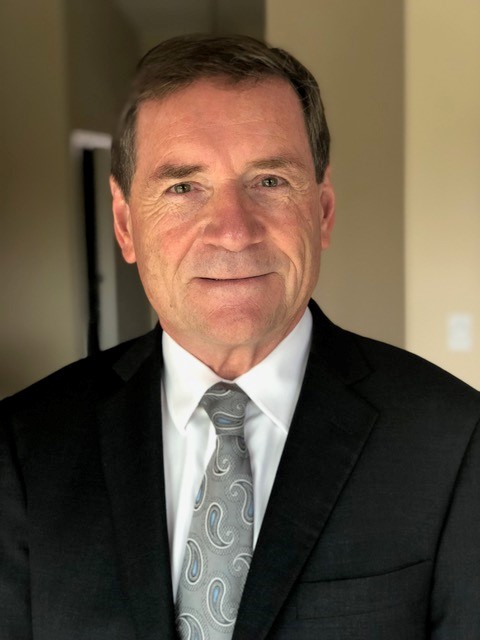AARP Hearing Center

It was early January of 1974. I was 21 years old. I had just completed my law degree at Leeds University in UK and had learned one thing from law school. I did not want to be a lawyer at that time. So instead I applied to Voluntary Service Overseas, the UK equivalent of Peace Corps.
I was sent out to a rural community about 30 miles west of Mombasa in Kenya where I was expected to teach in a village high school. On my first morning there I walked to the store along a narrow path bordered by thick undergrowth. A young boy - no more than about 10 years of age - was walking towards me from the opposite direction. Suddenly he stopped in his tracks and bowed his head slightly and uttered a word “Marahaba.”
When I reached the store I asked the owner what the Swahili word “Marahaba” meant. He smiled and explained that it was a term of respect. “For what?” I asked.
That is when I was first introduced to the concept of respect for someone who was older. For two years I lived in that culture. Whenever I came across an older adult, I would take the time to recognize my elders and give them the respect they deserved.
That was 1974. How times have changed!
Kenya - along with every other nation - is facing a growing social and criminal justice crisis. Sadly, it appears that our treatment of older adults across the world has deteriorated over the past few decades. Elder abuse is no longer a “western civilization” problem. It is global and it is escalating.
Tragically we read – often daily – of incidents where older adults both here in the United States and across the globe have become victims of fraud, scams, physical, mental and sexual abuse and neglect.
According to World Health Organization estimates, 1 in 6 people over the age of 60 suffers from some type of abuse. That equates to about 141 million people globally. But this number may be much higher as abuse, neglect and exploitation of older people are among the most hidden and under-reported of violations of human rights. Often victims of this crime are too afraid or embarrassed to report their experience to the authorities; or in cases of cognitive decline, victims may not understand they have been defrauded or exploited.
More needs to be done in order to bring elder abuse into the spotlight.
So it is fitting that in mid-June the United Nations will call upon all nations to refer to June 15 as World Elder Abuse Awareness Day [WEAAD].
WEAAD was officially recognized by the UN General Assembly in 2011 following a request by the International Network for the Prevention of Elder Abuse who first established the commemoration in June 2006.
But the challenge for every community here and overseas is to ensure that the spotlight does not fade away on June 16. Elder abuse has been called by some “the crime of the 21st century” with good reason. Demographics alone show how we are fast becoming an aging society. We are told that in one day in the United States 10,000 people turn 65; and that by the year 2035 there will be more people in this country over the age of 65 than children under the age of 18.
For 22 years from 1996 to 2018 I had the privilege of heading up the San Diego District Attorney’s Elder Abuse Prosecution Unit. During that period I handled many serious criminal cases of elder abuse that included homicides, sexual and other physical assaults, emotional abuse, neglect, false imprisonments and financial exploitation of older adults whose ages ranged from 65 to 102. And it became abundantly clear that an effective response to combat this crime involves more than law enforcement, social services or prosecutors. We need to engage people from all walks of life such as mail carriers, bank tellers, clergy, hairdressers, neighbors and adult children of aging parents.
Such a task requires an effective awareness campaign. So, when AARP approached me in 2019 to become an ambassador I jumped at the opportunity. I am delighted that AARP has made elder abuse awareness and prevention a priority. This is evidenced by the number of events that are held throughout the year, not just on one day. There are webinars and telephone town halls, in-community presentations (preempted by COVID but returning), printed articles in magazines and online; there is the effective Fraud Watch Network, a bank training program entitled BankSafe, and so many other educational resources that are available through AARP’s website.
It would be unrealistic to suggest that we can eradicate elder abuse or to expect that young people would stop and bow when seeing an older person approaching. But I am a firm believer that by continuing to educate, inform and conduct awareness presentations AARP will help many folks avoid becoming a victim. Similar efforts will occur throughout the world on June 15; but AARP is committed to making sure that the message of WEAAD is not forgotten on June 16 but is repeated day after day.
Visit www.aarp.org/local for events in your community.

This article was written by Paul Greenwood
Paul Greenwood is a retired San Diego Deputy District Attorney where he headed up the Elder Abuse Prosecution Unit for 22 years. He has prosecuted over 750 felony cases of physical, sexual, emotional and financial elder abuse. Paul now spends much of his post-retirement time consulting on elder abuse cases and providing trainings to law enforcement and Adult Protective Services agencies across the country and internationally. He is also a criminal justice board member of National Adult Protective Services Association.































































